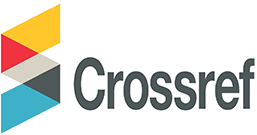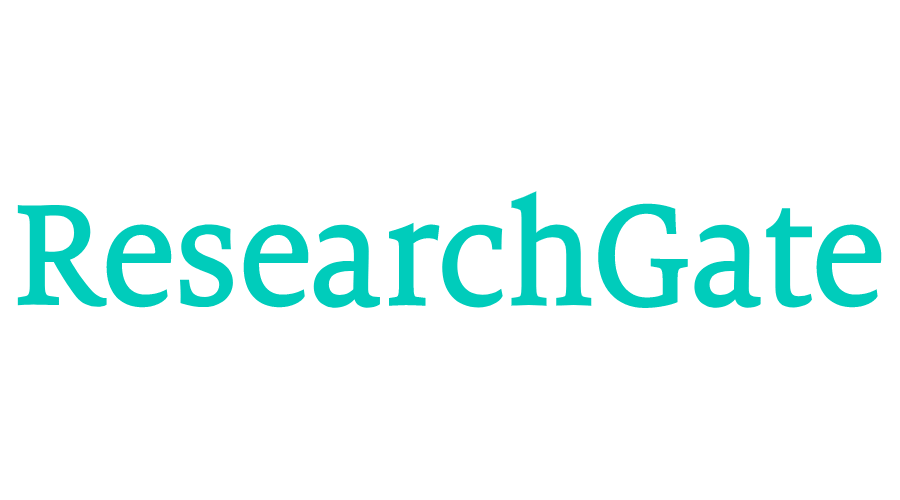La ventaja de la atención: cómo las empresas de Internet se aprovechan del consumidor desinformado
DOI:
https://doi.org/10.51896/easc.v3i1.878Palabras clave:
Empresas de medios de comunicación, medios sociales, privacidad digital, intermediación de datos, atención, datos, internetResumen
Este artículo presenta un análisis del papel del/a consumidor/a en una internet social. Repasa las prácticas de privacidad y recopilación de datos, las empresas modernas de medios de comunicación, la publicidad digital, y las repercusiones a las que se enfrentan los/as consumidores/as y usuarios/as en el actual panorama digital. Explica el panorama de la intermediación de datos y el papel que desempeñan las empresas tecnológicas modernas en la economía digital. Este análisis establece conexiones entre lo informados que están los/as consumidores/as y cómo se comportan en línea, argumentando que las empresas que poseen diversos medios se benefician de los/as consumidores/as desinformados/as. El documento proporciona el contexto crítico de las grandes empresas de internet con ánimo de lucro, dentro de un ecosistema en el que opera la mayoría de la población mundial. Esta comprensión sienta las bases de la investigación relacionada con las economías digitales y la participación en los medios de comunicación en línea, y puede brindar a los/as usuarios/as la oportunidad de tomar decisiones más informadas a nivel individual y político.
Descargas
Citas
Allyn, B. (2022, November 14). Google pays nearly $392 million to settle sweeping location-tracking case. NPR. https://www.npr.org/2022/11/14/1136521305/google-settlement-location-tracking-data-privacy
Anderson, J., & Lee Rainie. (2017, October 19). The Future of Truth and Misinformation Online. Pew Research Center. https://www.pewresearch.org/internet/2017/10/19/the-future-of-truth-and-misinformation-online/
Ang, C. (2022, April 25). How Do Big Tech Giants Make Their Billions? Visual Capitalist. https://www.visualcapitalist.com/how-big-tech-makes-their-billions-2022/
CBS/AP. (2018). Can Facebook restore public trust after Cambridge Analytica scandal? CBS News. https://www.cbsnews.com/news/facebook-cambridge-analytica-restore-public-trust-after-privacy-scandal/
Chomanski, B. (2025). The challenge of regulating digital privacy. Critical Review of International Social and Political Philosophy, 0, 1-25. https://doi.org/10.1080/13698230.2025.2478725
CLRN. (2024, December 9). What are social media engagements? California Learning Resource Network. https://www.clrn.org/what-are-social-media-engagements/
DeFazio, A. (2025, April 4). How Much Do Instagram Ads Cost? (+How to Make the Most of Your Budget). WordStream. https://www.wordstream.com/blog/ws/2021/02/08/instagram-ads-cost
Ding, X., & Huang, H. (2024). For whom is privacy policy written? A new understanding of privacy policies. Computer Law & Security Review, 55, 1-13. https://doi.org/10.1016/j.clsr.2024.106072
EDPB. (2023, May 22). 1.2 billion Euro fine for Facebook as a result of EDPB binding decision. European Data Protection Board. https://www.edpb.europa.eu/news/news/2023/12-billion-euro-fine-facebook-result-edpb-binding-decision_en
Fuchs, C. (2020). Communication and Capitalism. A critical theory. University of Westminster Press. https://doi.org/10.2307/j.ctv12fw7t5
Gartner Inc. (2023, December 18). Gartner Predicts 50% of Consumers Will Significantly Limit Their Interactions with Social Media by 2025. Gartner. https://www.gartner.com/en/newsroom/press-releases/2023-12-14-gartner-predicts-fifty-percent-of-consumers-will-significantly-limit-their-interactions-with-social-media-by-2025
Heiligenstein, M. (2023, August 8). How companies track you online – the definitive guide. Firewall Times. https://firewalltimes.com/how-companies-track-you-online/
Hern, A. (2018, May 6). Cambridge Analytica: How did it turn clicks into votes? The Guardian. https://www.theguardian.com/news/2018/may/06/cambridge-analytica-how-turn-clicks-into-votes-christopher-wylie
Horwitz, J. (2023). Broken code: Inside Facebook and the fight to expose its harmful secrets. Doubleday.
Influencer Marketing Hub. (2025, March 21). 20 of Instagram’s highest paid stars in 2024. Influencer Marketing Hub. https://influencermarketinghub.com/instagram-highest-paid/
Keegan, J., & Ng, A. (2021, September 30). There’s a multibillion-dollar market for your phone’s location data. The Markup. https://themarkup.org/privacy/2021/09/30/theres-a-multibillion-dollar-market-for-your-phones-location-data
Kemp, S. (2025, March 23). Digital 2025: Global Overview Report - DataReportal – Global Digital Insights. DataReportal. https://datareportal.com/reports/digital-2025-global-overview-report
Klosowski, T. (2021, May 6). We checked 250 iphone apps-this is how they’re tracking you. The New York Times. https://www.nytimes.com/wirecutter/blog/how-iphone-apps-track-you/
Kreiss, D., & McGregor, S. C. (2017). Technology firms shape political communication: The work of Microsoft, Facebook, Twitter, and google with campaigns during the 2016 U.S. presidential cycle. Political Communication, 35(2), 155–177. https://doi.org/10.1080/10584609.2017.1364814
Kuklinski, J. H., Quirk, P. J., Jerit, J., Schwieder, D. and Rich, R. F. (2000). Misinformation and the Currency of Democratic Citizenship. The Journal of Politics, 62(3), 790-816. https://www.jstor.org/stable/2647960
Lee, Y.-H. and Yuan, C. W. (2020). The Privacy Calculus of “Friending” Across Multiple Social Media Platforms. Social Media + Society, 6(2). https://doi.org/10.1177/2056305120928478
Lindgren, E., Damstra, A., Strömbäck, J., Tsfati, Y., Vliegenthart, R. and Boomgaarden, H. (2022). Knowledge Resistance in High-Choice Information Environments. Routledge. https://doi.org/10.4324/9781003111474-10
Litman-Navarro, K. (2019, June 12). We read 150 privacy policies. they were an incomprehensible disaster. The New York Times. https://www.nytimes.com/interactive/2019/06/12/opinion/facebook-google-privacy-policies.html
McClain, C., Faverio, M., Anderson, M. and Park, E. (2023a, October 18). 1. Views of data privacy risks, personal data and Digital Privacy Laws. Pew Research Center. https://www.pewresearch.org/internet/2023/10/18/views-of-data-privacy-risks-personal-data-and-digital-privacy-laws/
McClain, C., Faverio, M., Anderson, M. and Park, E. (2023b, October 18). How Americans View Data Privacy. Pew Research Center. https://www.pewresearch.org/internet/2023/10/18/how-americans-view-data-privacy/
Medintz, S. (2024, November 20). Americans Want Much More Online Privacy Protection Than They’re Getting. Consumer Reports. https://www.consumerreports.org/electronics/privacy/americans-want-much-more-online-privacy-protection-a9058928306/
Nguyen, S. (2024, August 20). FTC imposes $5 billion penalty and sweeping new privacy restrictions on Facebook. Federal Trade Commission. https://www.ftc.gov/news-events/news/press-releases/2019/07/ftc-imposes-5-billion-penalty-sweeping-new-privacy-restrictions-facebook
Parker, K. D. (2024, August 12). The hidden dangers of privacy laws like the GDPR and CCPA. Forbes. https://www.forbes.com/councils/forbestechcouncil/2020/11/25/the-hidden-dangers-of-privacy-laws-like-the-gdpr-and-ccpa/
Prince, C. (2018). Do consumers want to control their personal data? empirical evidence. International Journal of Human-Computer Studies, 110, 21-32. https://doi.org/10.1016/j.ijhcs.2017.10.003
Rahman-Jones, I. (2024, August 23). Should you have to pay for online privacy? BBC News. https://www.bbc.co.uk/news/articles/c93599ejdeno
Rainie, L. (2018, March 27). Americans’ complicated feelings about social media in an era of privacy concerns. Pew Research Center. https://www.pewresearch.org/short-reads/2018/03/27/americans-complicated-feelings-about-social-media-in-an-era-of-privacy-concerns/
Richter, F. (2019, May 11). Wall Street Has Moved On From Cambridge Analytica Scandal. Statista. https://www.statista.com/chart/13822/facebook-share-price/
Sharma, R. and Chandola, V. (2024). Data broker market. Dataintelo. https://dataintelo.com/report/data-broker-market
Shukla, S., Bisht, K., Tiwari, K. and Bashir, S. (2023). Data Economy in the Digital Age. Springer. https://doi.org/10.1007/978-981-99-7677-5_1
Simon, H. A. (1971). Designing Organizations for and Information-Rich World. In M. Greenberger (Ed.), Computers, communications, and the public interest (pp. 37-72). Johns Hopkins University Press. https://gwern.net/doc/design/1971-simon.pdf
Singh, B. (2024, October 11). The Privacy Policy of Social Media Platforms. The Law Communicants. https://thelawcommunicants.com/the-privacy-policy-of-social-media-platforms/
Steinfeld, N. (2016). “I agree to the terms and conditions”: (how) do users read privacy policies online? an eye-tracking experiment. Computers in Human Behavior, 55, 992-1000. https://doi.org/10.1016/j.chb.2015.09.038
Stewart, T. (2025, April 3). Driving engagement: How attention delivers profits. New Digital Age. https://newdigitalage.co/advertising/attention-profits-uber-advertising-lumen-research-paul-wright-mike-follett/
Tau, B. (2024). Means of control: How the Hidden Alliance of Tech and government is creating a new American Surveillance State. Crown.
Team, T. (2017, October 30). Facebook’s Strong Ad Revenue Growth to Continue. Forbes. https://www.forbes.com/sites/greatspeculations/2017/10/30/facebooks-strong-ad-revenue-growth-to-continue/
The General Data Protection Regulation - Consilium. (2024, June 13). https://www.consilium.europa.eu/en/policies/data-protection-regulation/
Tremblay, A. (2024, February 27). 2024: The Year of Disengagement from Social Media. Tink. https://www.tink.ca/en/insights/2024-year-disengagement-social-media
UMATechnology. (2025, January 27). Meta Rolls Out Privacy Policy Update for Instagram and facebook. UMA Technology. https://umatechnology.org/meta-rolls-out-privacy-policy-update-for-instagram-and-facebook/
UpGrow. (2024, October 25). What data does Instagram collect. UpGrow. https://www.upgrow.com/blog/instagram-data
Urbonavicius, S., Degutis, M., Zimaitis, I., Kaduskeviciute, V., & Skare, V. (2021). From social networking to willingness to disclose personal data when shopping online: Modelling in the context of social exchange theory. Journal of Business Research, 136, 76-85. https://doi.org/10.1016/j.jbusres.2021.07.031
Descargas
Publicado
Cómo citar
Número
Sección
Licencia

Esta obra está bajo una licencia internacional Creative Commons Atribución-NoComercial 4.0.
Usted es libre de:
- Compartir — copiar y redistribuir el material en cualquier medio o formato
- Adaptar — remezclar, transformar y construir a partir del material
Bajo los siguientes términos:
- Atribución — Usted debe dar crédito de manera adecuada, brindar un enlace a la licencia, e indicar si se han realizado cambios. Puede hacerlo en cualquier forma razonable, pero no de forma tal que sugiera que usted o su uso tienen el apoyo de la licenciante.
- NoComercial — Usted no puede hacer uso del material con propósitos comerciales.



































